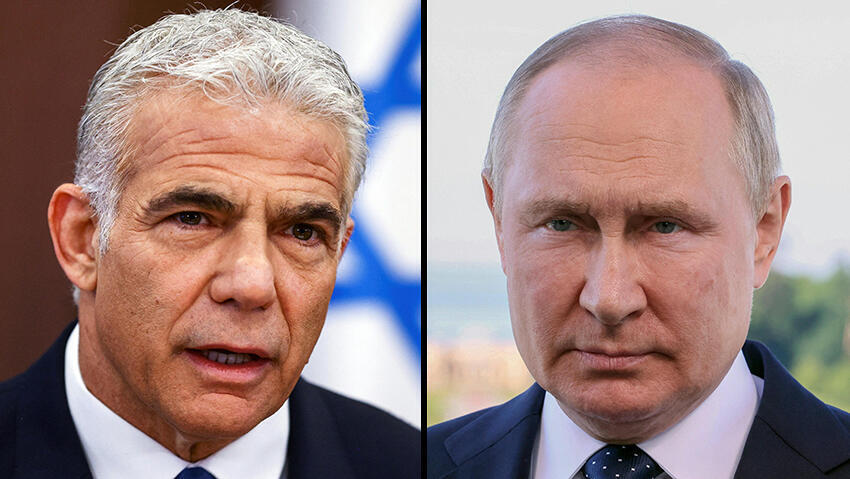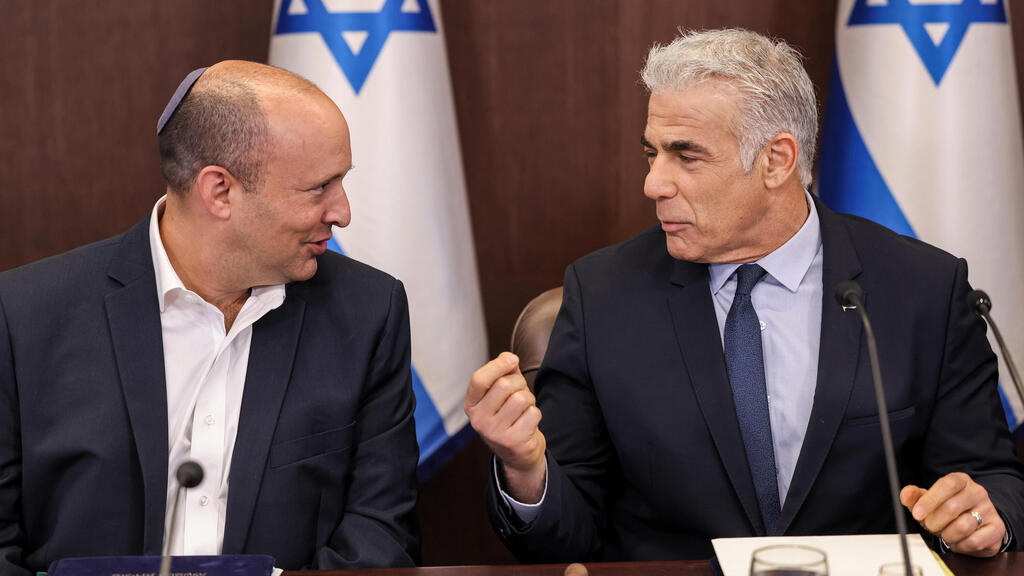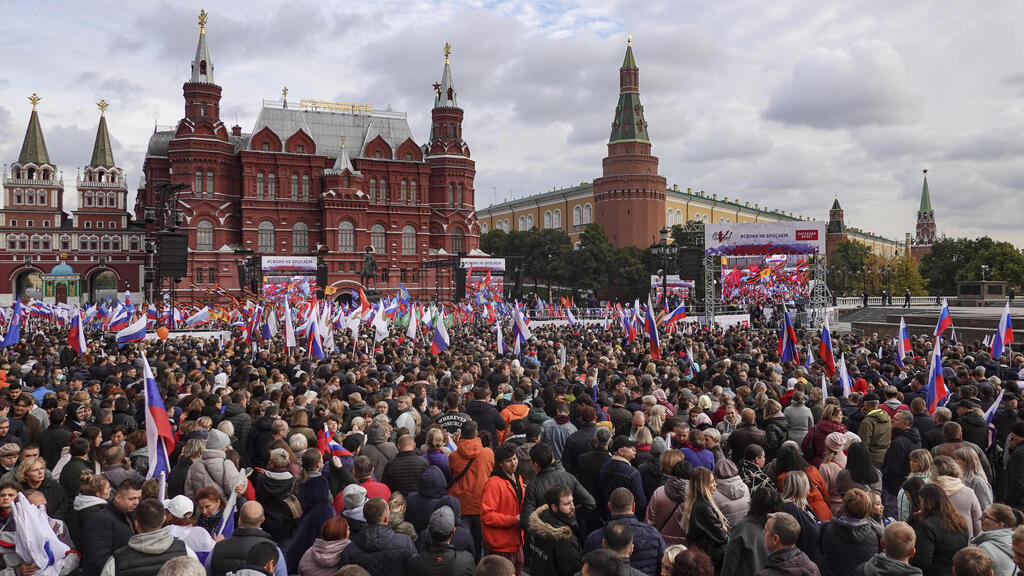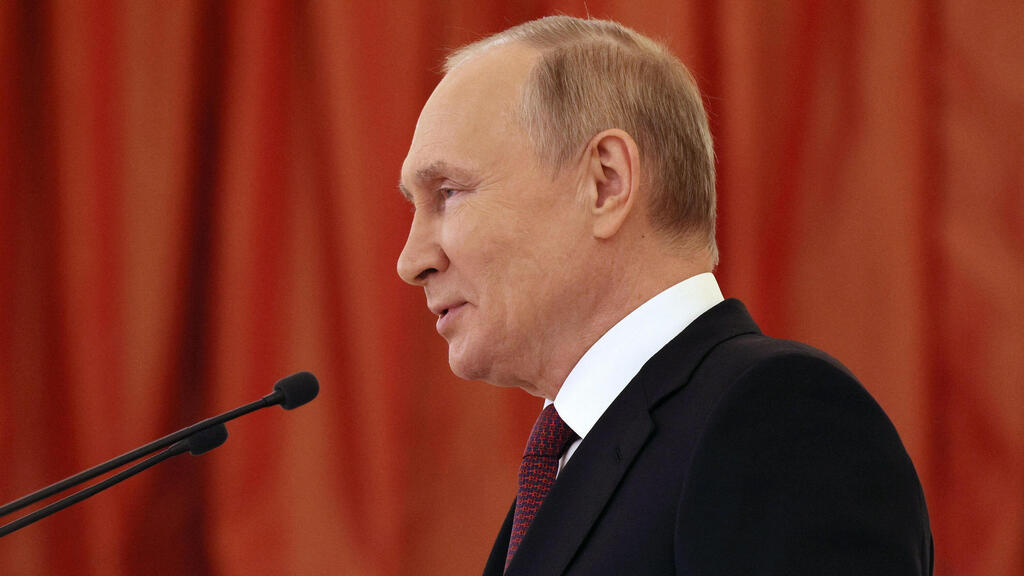Getting your Trinity Audio player ready...
Israel has openly rejected the outcomes of this week’s Russian-imposed referendums for the eastern and southern Ukrainian territories it occupies. These were staged by Russian President Vladimir Putin in order to annex the territories to the Russian Federation - as was done at a ceremony in Kremlin on Friday afternoon.
Kremlin officials declared victory on Tuesday after the results were published by Russian media. The pro-annexation vote was reportedly over 98% in the self-proclaimed Donetsk and Luhansk People’s Republics, 93% in the Zaporizhzhia region, and 87% in the Kherson region.
As Russian officials proclaimed victory, Ukraine and its allies called the referendums a sham and condemned Putin’s intention to annex the regions, which constitute about 15% of Ukraine’s territory.
Ukrainian President Volodymyr Zelenskyy scoffed at the referendums as a “farce,” while the country’s Foreign Ministry called for the international community to “immediately and significantly increase pressure on Russia, including by imposing tough new sanctions, and significantly increase their military aid to Ukraine, including by providing us with tanks, combat aircraft, armored vehicles, long-range artillery, anti-aircraft [weapons], and missile defense equipment.”
Israel’s government released a tough statement on Tuesday explicitly rejecting the referendums’ outcomes as threatening Ukrainian sovereignty. “Israel recognizes the territorial integrity and sovereignty of Ukraine and will not recognize the results of the referendums in its eastern districts,” the statement read.
Since the beginning of the Russian invasion nearly seven months ago, Israel has tried to avoid being perceived by Moscow as strongly opposing it, due to Jerusalem’s security understandings with it concerning counterattacks against Iranian-supported terrorist activity in Syria and Lebanon. To this end, Israel has not sent military aid to Ukraine but has focused on providing humanitarian and medical assistance to Kyiv.
Jonathan Dekel-Chen, professor of history at the Hebrew University of Jerusalem, said that, under the premierships of both Naftali Bennett and Yair Lapid until now, “Israel has been very measured in its public statements and in general terms has voiced more than once that the invasion itself is not a just act while quietly and nonlethally assisting Ukraine.”
However, he added, the referendums crossed a red line for Israel because of international law. Dekel-Chen explained that Israel felt comfortable and secure enough to voice its disapproval in the legal arena without endangering the relationship and the nonconfrontation agreements it has with Russia over the skies of Syria, over its airstrikes on pro-Iranian forces there, and in Lebanon.
Alan Baker, a former legal adviser to the Foreign Ministry and former Israeli ambassador to Canada, said that Israel’s condemnation might not be appealing to Russia, but Israel could not refuse to act.
“The Russians might not like it but there is a limit on what we [Israel] have to do in order not to anger the Russians,” he said. Baker noted that the annexation of territories, which is a political act, is illegal under international law. “The Israeli government is just expressing its legal viewpoint,” he added.
Dekel-Chen described the Israeli statement as a “calculated risk,” explaining that, since there is such wide international condemnation of the referendums, “Israel is one more voice in it, and as for the Russians, their concerns are elsewhere at this point.”
Dr. Shay Har-Zvi, a senior researcher at the Institute for Policy and Strategy at Reichman University in Herzliya, noted that the war in Ukraine is escalating every day, and the fact that Russia held a referendum in the last few days is part of this escalation.
“I believe that, in the near future, there will be a further escalation, because President Putin is determined to achieve political gains from the war,” he said. One of them, he added, “is to annex the territories that Russia has occupied in the last seven months.”
From the Israeli point of view, continued Har-Zvi, there is no justification for such a move by Russia since those territories are acknowledged by the West and by international law as Ukrainian territories.
However, he does not believe that Israel’s open opposition to the referendums will change Putin’s approach to Israel. “From the strategic point of view, I don’t think that Moscow will change its attitude toward Israel,” he said.
Dekel-Chen agreed, adding that this was a diplomatic issue and not a security issue, and therefore, “the calculation must have been along the line of not criticizing the Russian military per se but only the legality of Putin’s move to extend Russian-controlled territory,” so that Moscow would ignore Israel’s condemnation.





